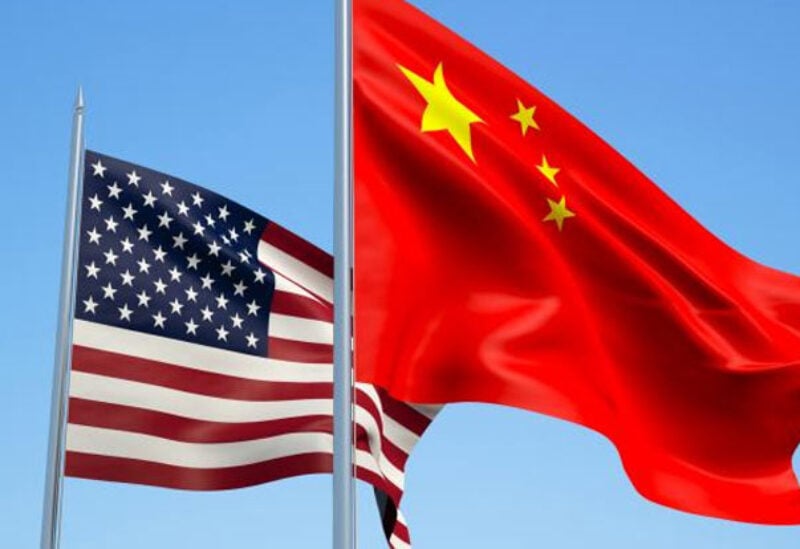
According to two sources briefed on the case, the Biden administration ordered a ban on U.S. imports of a major solar panel material from Chinese-based Hoshine Silicon Industry Co on Wednesday due to allegations of forced labor.
The US Commerce Department imposed separate export restrictions on Hoshine, three other Chinese firms, and the paramilitary Xinjiang Production and Construction Corps (XPCC), alleging that they were involved in the forced labor of Uyghurs and other Muslim minorities in Xinjiang.
Xinjiang Daqo New Energy Co, a subsidiary of Daqo New Energy Corp; Xinjiang East Hope Nonferrous Metals Co, a subsidiary of Shanghai-based manufacturing giant East Hope Group; and Xinjiang GCL New Energy Material Co, a subsidiary of GCL New Energy Holdings Ltd, are the three other companies added to the US economic blacklist.
The companies and XPCC were “involved in human rights violations and abuses in the implementation of China’s campaign of repression, mass arbitrary detention, forced labor, and high-tech surveillance against Uyghurs, Kazakhs, and other members of Muslim minority groups in” Xinjiang, according to the Commerce Department.
At least some of the companies listed by the Commerce Department are major manufacturers of monocrystalline silicon and polysilicon that are used in solar panel production.
The companies or their parent firms did not immediately respond to requests for comment, or could not immediately be reached. XPCC could not immediately be reached for comment.
China’s foreign ministry spokesman Zhao Lijian said on Thursday that China will take “all necessary measures” to protect its companies’ rights and interests. Beijing has dismissed accusations of genocide and forced labor in Xinjiang as lies.
The immediate effect of the restrictions would be limited as the companies named do not have “vast contracts” with U.S. based wafer companies, Dennis Ip, Regional Head of Power, Utilities, Renewables & Environment (PURE) Research at Daiwa said in a note to clients.
“However, we see the possibility of gradually expanding the ban to include limitations on all solar modules including Xinjiang-produced polysilicon,” he said.
He noted that Chinese module makers might still use polysilicon from Inner Mongolia and Yunnan for shipments to the United States.
Xinjiang produces about 45 percent of the polysilicon used in solar module production, with the remaining 35 percent coming from other parts of China. The rest comes from countries other than China.
Record-high polysilicon, labor, and freight prices have strained the global solar energy supply chain.
The “Withhold Release Order” issued by US Customs and Border Protection only prevents the item from being imported from Hoshine. According to a source familiar with the directive, it has no effect on the majority of polysilicon and other silica-based goods imported into the United States.
According to a second source, President Joe Biden’s climate ambitions and backing for the domestic solar business are unaffected by the move.
In March, the Biden administration established a goal of lowering the cost of solar energy by 60% in the following ten years. By 2035, President Biden wants to have a 100 percent clean electrical grid.
The sources said the United States is continuing to investigate allegations of forced labor by Chinese companies who supply polysilicon.
The Xinjiang region accounts for approximately 45% of the world’s solar-grade polysilicon supply, a report by solar industry analysts found.
The two sources familiar with the policy said the White House sees the actions as a “natural continuation” of the G7 agreement earlier this month to eliminate forced labor from supply chains.
“We view these three actions as putting that commitment into action,” one of the sources said. “We believe these actions demonstrate a commitment to imposing additional costs on the PRC for engaging in cruel and inhumane forced labor practices.”
The XPCC, a paramilitary force dispatched to Xinjiang in the 1950s to construct farms and communities, continues to wield control in the region’s energy and agriculture sectors, operating practically as a parallel state.
It has been accused by foreign governments and human rights advocates of being a force in the region’s persecution and monitoring of Uyghurs, and of overseeing several detention facilities. XPCC was sanctioned by the US Treasury Department last year for “serious rights abuses against ethnic minorities.”